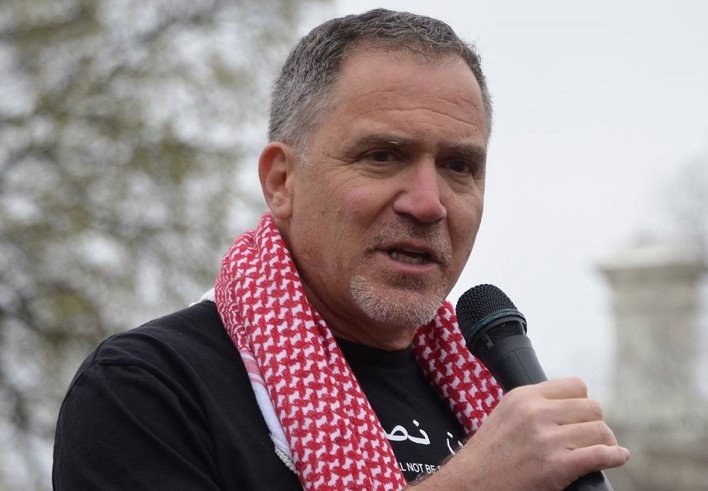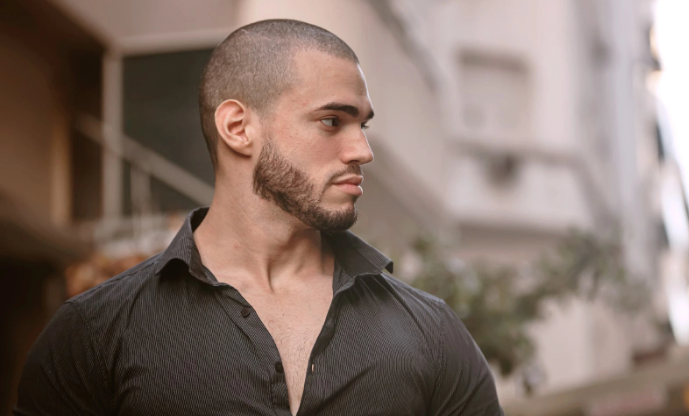The son of an Israeli general is turning heads after branding the Israeli government a “terrorist state” and “apartheid regime.” His incendiary statements have sparked intense debate around the world. However, these claims polarize conflict much more than political commentary; they show a deepening public discontent within Israel regarding the violence inflicted on Palestine and the regime’s genocidal policies.
Formerly an Israeli peace advocate, Miko Peled made this statement against his father’s wishes. His father, Matti, is regarded as an Israeli military archetype. He is one of the very few Israeli generals who candidly spoke out against the state’s brazen violence inflicted on Palestinians. Fighting in the 1967 Six-Day War, he was rather routinely celebrated as the unbendable Israeli military’s bulwark. Unlike his father, Miko followed a totally progressive path full of international activism and justice advocacy for the Palestinians.
Miko Peled categorically stated that Israel is a terrorist state due to the actions he claims the Israeli Defense Forces undertake in Gaza and the West Bank. He believes Palestinians are victims of state terrorism through violent means like home demolitions, night raids, extrajudicial killings, and the siege of Gaza. In his words, “a state that systematically uses force to suppress and terrorize a population is, in fact, practicing terrorism,” quite literally possesses the definition of terrorism in his interpretation.
He also correlates Israeli apartheid policies to the South African model of apartheid. This, along with many civil and international bodies have put forth claims, including Amnesty International and Human Rights Watch, that Israel is an apartheid State. These two centers of accusation underline Israel’s control over civil order in the West Bank where one of the two sets of legal systems is applicable is for the Palestinians and the other for the Israelis and includes the numerous legal, physical, and bureaucratic restrictions placed on access by Palestinians to services and resources that are available to the Israeli settlers.
Makes all the difference – this is Miko Peled’s story. Just like many others, he was a firm believer of the Zionist vision, which is the reason he served in the Israeli army. His life took a major turn after the suicide bombing that claimed the life of his niece. Instead of resorting to hatred, Peled committed the rest of his life to understanding the conflict. He began meeting Palestinians, going to the occupied areas, and witnessing life under occupation for a vast majority of people.
This ultimately led to Peled becoming an active supporter of the Palestinian cause while simultaneously supporting the creation of a unitary democratic state that allows Palestinians and Israelis as equal citizens to live together. Along with other advocates, he used to believe in the practicality of a two-state solution. However, he argues that the never-ending growth of Israeli settlements along with the relentless fragmentation of Palestinian land has made it impossible for the two-state solution to ever happen. He claims that the only way lasting peace can be achieved is if there is a singular governing body that has equal power for all citizens.
Peled’s remarks have sparked significant backlash in Israel, some even go as far as labeling him a traitor for striking at the core aspects of the nation. Nevertheless, a portion of Israeli youth, along with some international activists, tend to consider him a courageous truth-teller who defies a decades-long unquestioned system. His willingness to speak has also found resonance among Palestinian activists who view him as an exceptional case of an Israeli ready to confront harsh realities.
The consequences of Peled’s comments are not limited to Israel and Palestine. They force world powers to reconsider their position concerning the Israeli government. Take the United States, for instance; they still provide billions in military aid to Israel every year. If, as Peled and others argue, Israel indeed practices apartheid and commits state terrorism of sorts, this aid transforms into the label of complicity.
Moreover, Peled’s critiques only go on to weaken the peace treaties for lacking a better term which disregard the striking difference of the power dynamics between the occupier and occupied. Numerous discussions to solve the conflict have tried to secure a stronghold for Israel without serving justice to Palestine.
That, according to Peled, is why peace attempts have continuously struggled to offer lasting answers.
Ultimately, Miko Peled describing Israel as a “terrorist state” and “an apartheid regime” is in itself a contentious assertion, and yes a sweeping one. It challenges the existing order. It is a brave thing to invite the scrutinizing gaze to consider realities far less pretty than the sanitized narration of occupations and confront the abuses of power against those people who live under that state of being occupied. No, Miko Peled will not be accepted by all, but his new, often unwanted contributions have adding the loud call for accountability, justice, and peace, and sadly, in a region where such notions are almost nonexistent.
Miko Peled is defending those people, and emphasizing that it isn’t blind backing or a shushed mouth that needs to be offered, but rather the plain confronting of the fact and the fierce willingness to speak it, even if it comes at a grave price.



